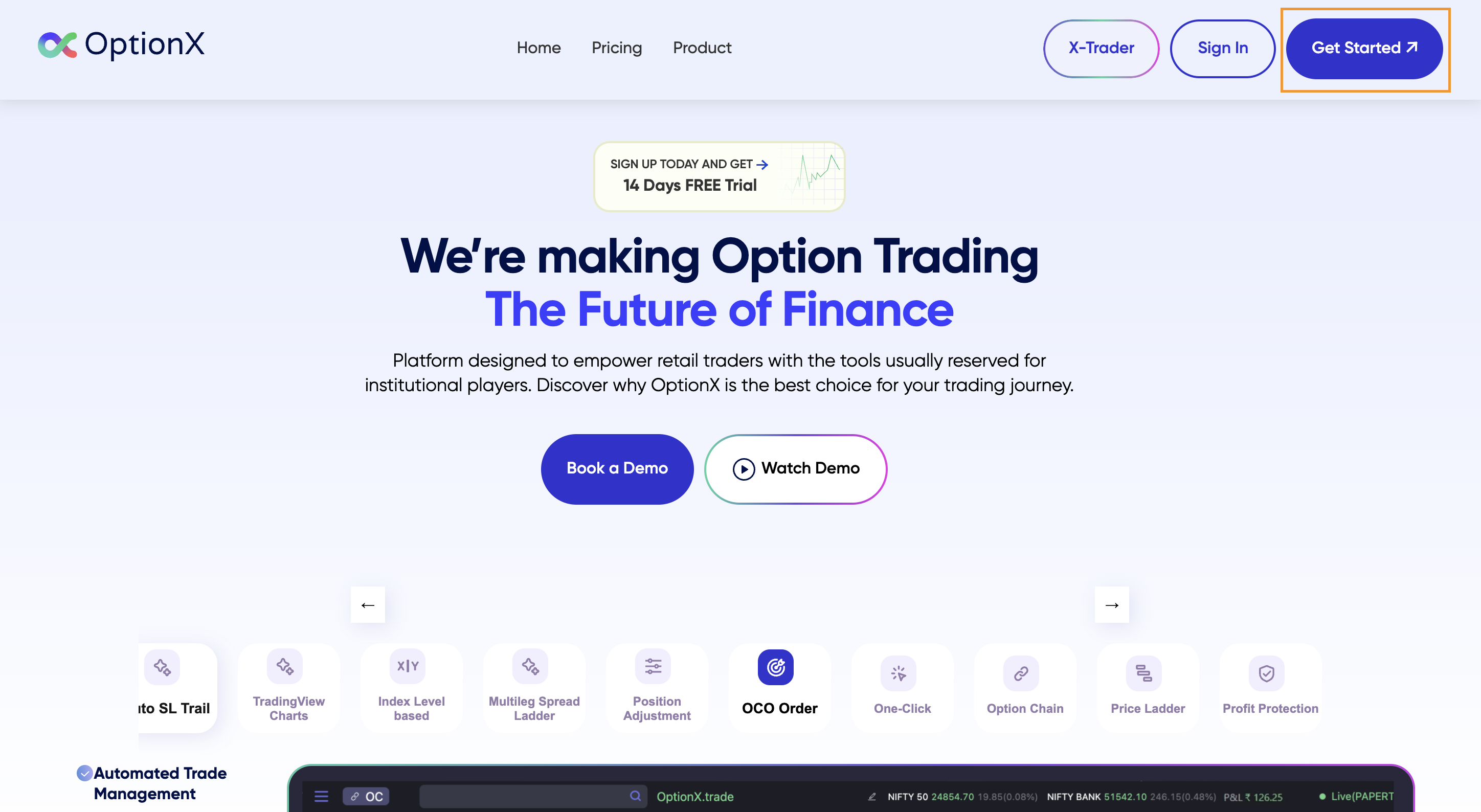Step-by-step Configuration Guide
Last updated April 18, 2025
Welcome to OptionX. We're excited to have you onboard! OptionX is a powerful trading platform designed to help you place, manage, and analyze your options trades with ease. Whether you're a beginner or a professional trader, this guide will help you get started quickly.
Follow the steps below to set up your account, start trading, and make the most of your OptionX experience.
1. Login on the OptionX Platform
Visit the OptionX Trading Platform and sign in using your credentials. If you're new, register and complete the onboarding process to activate your workspace.

2. Choose Default Workspace
After logging in, you'll be prompted to select or create a workspace. Choose your preferred workspace and save it as default to avoid reselecting each time you log in.

3. Enable Paper Trading
To get started without risking real capital, enable the Paper Trading mode from the settings. This allows you to practice with virtual funds in a real-time market environment.

4. Update the Index and Quantity
On the main dashboard, select the option contract you want to trade. Update the strike price, expiry, and the quantity based on your strategy.

5. How to Place Order
The price ladder shows real-time bids and offers. Click directly on the price to place a buy or sell order instantly. You can choose between Market, Limit, or Stop orders as needed.

6. Find Your Positions
Once your order is executed, you can view all active positions in the Position Table. It displays crucial information like entry price, P&L, and current status.

7. Manage Your Order
Navigate to the Order Book to modify or cancel pending orders. You can also adjust stop-loss or take-profit levels on existing trades directly from the position view.

8. Exit Order
When you're ready to close a position, click the “Exit” button next to the trade in the Position Table. You’ll be prompted to confirm before the order is placed.

9. Automate Your Workflows
OptionX offers automation features to help streamline your trading. Use rules-based automation to trigger orders based on market conditions or integrate with external APIs for advanced workflows.
